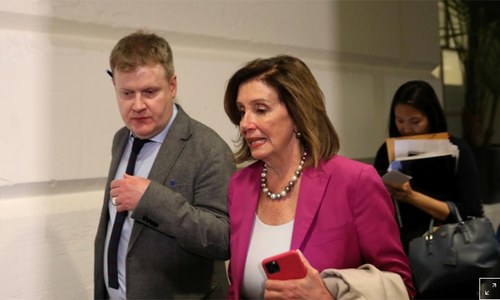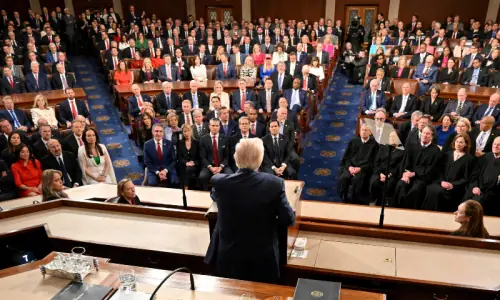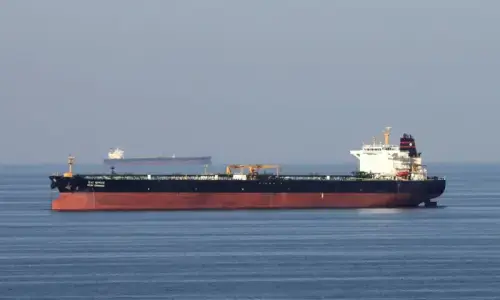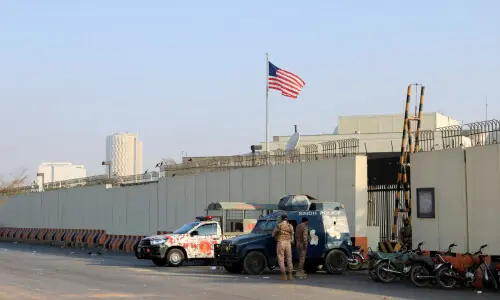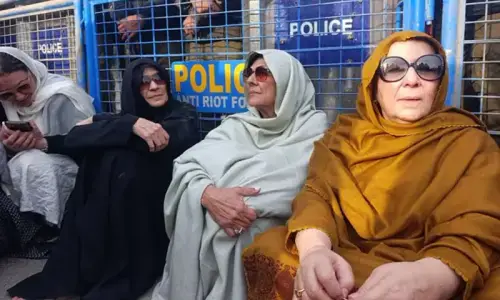Prime Minister Imran Khan has instructed Foreign Minister Shah Mahmood Qureshi to visit Iran, Saudi Arabia and the United States and meet with respective foreign ministers, and the US secretary of state.
In a tweet on Wednesday, Prime Minister Imran further said that he has asked Chief of Army Staff General Qamar Javed Bajwa to "contact relevant military leaders to convey a clear message: Pakistan is ready to play it's role for peace but it can never again be part of any war."
The decision comes after Iran launched missile attacks on US-led forces in Iraq, in the early hours of Wednesday, in retaliation for the US drone strike on Iranian commander Qasem Soleimani whose killing has raised fears of a wider war in the Middle East.
Earlier in the day, Prime Minister Imran had stressed the need to take "immediate measures for de-escalation" in the Middle East, amid rising tensions between the United States and Iran.
While talking to Oman's Minister for Endowment and Religious Affairs Sheikh Abdullah bin Muhammad bin Abdullah Assalami in Islamabad on Wednesday, the premier expressed "deep concern" over the evolving situation in the region, Radio Pakistan reported.
The prime minister underscored the imperative of avoiding any further escalation in the conflict.
While stressing that war is in nobody’s interest, Prime Minister Imran "recalled that Pakistan has suffered greatly due to earlier regional conflicts", the report said. He also made it clear that Pakistan "would not be part of any conflict in the region".
During the meeting, the premier also recalled his earlier attempts to facilitate contacts between the US and Iran as well as Tehran and Riyadh for resolution of their differences.
"Pakistan would always be a partner for peace and would continue playing its role to defuse tensions, prevent a conflict, and preserve peace," the prime minister was quoted as saying.
'Region cannot afford war'
Earlier on Wednesday, Foreign Minister Shah Mehmood Qureshi said rising tensions in the region due to the situation in the Middle East was not in anyone's interest, adding that the region could not afford war.
"The region cannot afford war. It is not in anyone's interest and will impact the global economy," Qureshi said, according to a statement issued by the foreign minister's spokesperson.
Qureshi added: "The ones who were attacked this morning are still assessing the damage. Initial reports suggest that there has been no loss of human life."
Commenting on Iranian Foreign Minister Javad Zarif's recent statement, Qureshi said it reflected Iran's intent to not escalate tensions.
"The statement reflected the seriousness of the situation and showed restraint. The US should also exercise caution.
"There is still a large majority in the US which is not in favour of war and does not want to thrust the US army into the frontlines," he said.
The foreign minister added he had been in touch with his counterparts in the region. "We are also endeavouring to ensure that tensions in the region remain in check."
Qureshi went on to say that the views expressed by him during the Senate session on Monday were the views of the government.
"It is too premature to say anything for certain as the situation is still precarious. However, Pakistan does not want tensions to escalate. This region cannot witness yet another war," the foreign minister emphasised.
"Such matters need to be resolved through dialogue. The UN Security Council and the international community need to play a role in resolving tensions in the region," he said.
'Pakistan will not be party to US-Iran conflict'
On Monday, Qureshi had briefed the Senate on tensions in the Middle East, making it clear that Pakistan will not become party to the regional conflict.
Qureshi told the Senate that according to regional experts, the repercussions of the strike that killed Soleimani could be more severe than the 2011 raid that killed Al Qaeda leader Osama bin Laden and the 2019 killing of militant Islamic State group chief Abu Bakr al-Baghdadi.
"The situation in the Middle East is very sensitive, fluid and concerning."
He maintained that Pakistan "does not support any unilateral action and is against the use of force as it never resolves matters".
"Pakistan's soil will not be used against any other state," Qureshi said, adding that Pakistan "will not be party to this regional conflict".




